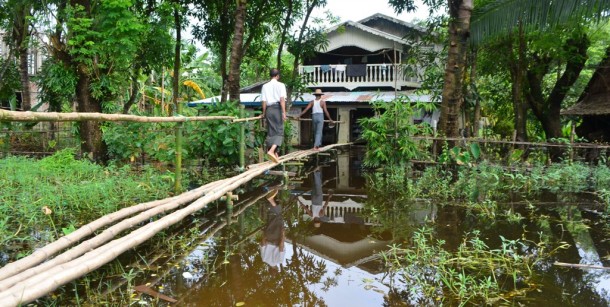Environmentalists say bamboo should be given special consideration for commercial plantation in Burma, which ranks among the world’s top producers of the plant.
The Myanmar Green Network (MGN) is calling for the sustained development of bamboo forests and the application of modern technology to produce high quality bamboo products.
“We don’t want bamboo groves to be depleted, and at the same time we want people to know its value,” said MGN chairperson Dewi Thant Sin, an environmentalist and the great granddaughter of Burma’s last monarch King Thibaw. She was speaking at the launch event for a new group known as the Bamboo Lovers Association in Rangoon on Jan. 11.
Citing Burma’s Ministry of Forestry, she said China was the most bamboo-rich country in the world, followed by India and Burma.
But government officials say bamboo groves in Burma have been improperly cared for and poorly protected.
“In the past our department did not take care of bamboo groves, but just collected taxes from the private sector for cutting them,” Dr. San Win, an official from the ministry’s Forestry Department, told The Irrawaddy. “There was almost no knowledge about bamboo in the department, and people generally did not even know that we had to grow bamboo from seed.”
He said that since 2001 bamboo has been used in the country to make furniture and for home decoration, but that more skills were needed to craft such products.
“Management of bamboo forests is key to producing high quality bamboo,” said Aung Moe Zaw, a researcher at the Forestry Department. “I did four years of research for a bamboo project under the government’s plan for rural area development. It is quite difficult to collect straight and old enough bamboo. Without proper technique, it is also hard to cut them.”
Dewi Thant Sin said the Burmese people could profit by protecting bamboo groves and improving production of bamboo products. She said the country generated $1 billion annually from bamboo, compared to $500 billion in other countries.
More than 178,000 acres near the Pegu and Tenasserim Yomas mountain ranges are reportedly vacant, and environmentalists say the geographic conditions are suitable for bamboo growth.

















